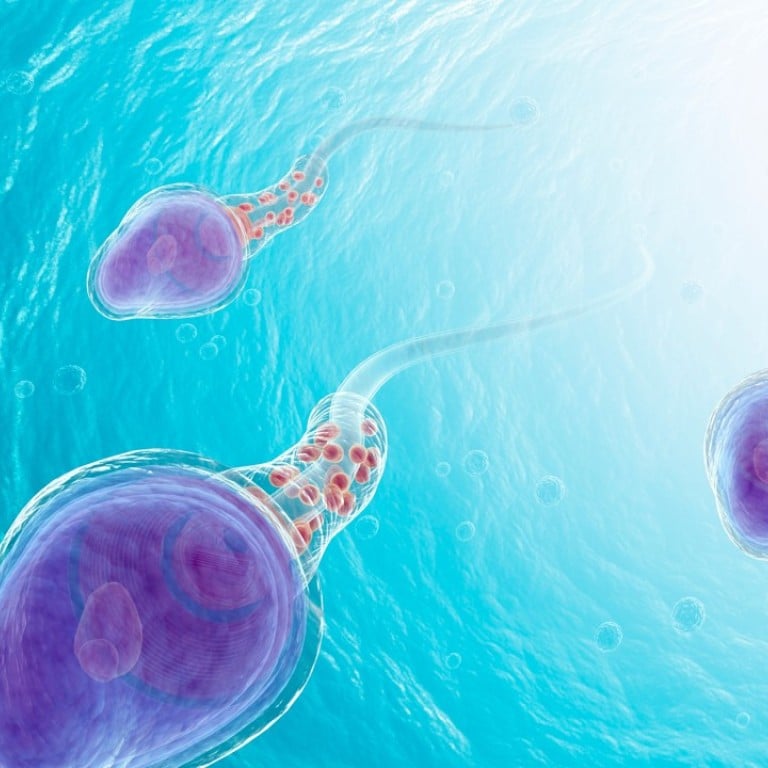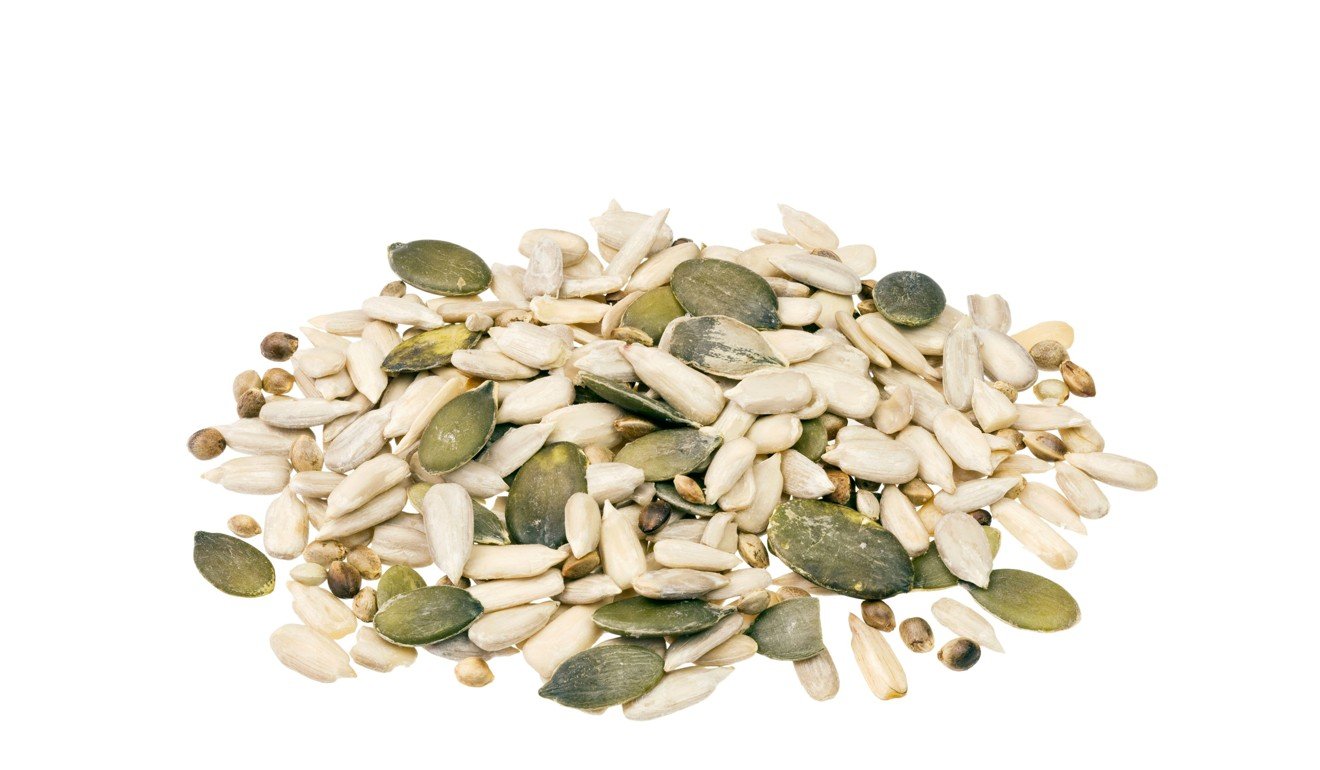
How to increase your sperm count and keep it up: lots of great sex, cold baths and garlic
Everything from heat to drugs to hormones to abuse during childhood can affect the number and health of sperm. Experts give tips on how to give a chance at fatherhood your best shot
As we celebrate Father’s Day, here’s a timely look at how to protect that crucial asset that helps turn men into dads: their sperm.
And a friendly reminder that an enjoyable way to start the day – great sex – isn’t just great for heart health. Studies underscore the importance of regular sex for sperm health, too.
All kinds of factors play a role in sperm health, from the environment a man lives in, to what he eats, and even his mental health.
New research from the Tufts University School of Medicine in Boston suggests that abuse or neglect in childhood might have an effect on the quality of a man’s sperm.
Infertility in Hong Kong: the stresses of IVF, and why couples give up
The study, based on the degree to which men had been exposed to physical, verbal or sexual abuse, or emotional neglect, analysed semen – the liquid that transports sperm – to assess key gene regulators found in sperm “miRNAs”; levels were 300 times lower among men who experienced early life abuse.
While the study was small, fertility specialists agree that there has been a steady decline in sperm quality over the past 20 years, which could be partly explained by a stressful contemporary lifestyle and partly by stress in childhood.
Infertility is a widespread problem and while we frequently focus on compromised female ability to reproduce, which accounts for a third of cases, a third is caused by male fertility issues – and a third by both. It is estimated that one in 20 men has some kind of fertility problem.

Found in about 40 per cent of men with infertility problems, this can be surgically treated, says Dr Ernest Ng, clinical professor at the Department of Obstetrics & Gynaecology at the University of Hong Kong.
Male infertility can be caused by complications that need medical intervention – varicoceles, tumours, infections, hormone imbalances, and physical defects such as undescended testes and blocked tubes, Ng says.
Sometimes, medical intervention itself, such as radiation treatment for cancer, X-rays and certain medications, may trigger problems. But there are a host of other factors that impact male fertility that can be addressed much more easily, and by the men themselves.

Keep them cool
The testicles need to maintain a temperature about two degrees Celsius cooler than core body temperature. “This is the reason the testicles are located outside the body in the scrotum rather than in the abdomen like the ovaries,” says Ardyce Yik, a naturopathic doctor.
It explains why, when it’s hot, the scrotum relaxes and the testicles settle lower, and, when it’s cold, as all men know, they rise up and sit closer to the body.

If the testicles are too hot for too long, sperm quality and quantity are affected. That can happen in baths that are too hot, feverish states from prolonged illness (sperm takes time to recover just as its bearers do) and heat radiation from outside sources – male chefs, for example, shouldn’t stand too close to hot ovens for too long, and laptops, which can get quite warm, must not be balanced on – well, laps.
The biological clock ticks for men too, researchers find
Dr Ng warns men not to keep radiation- and heat-emitting mobile phones in their trouser pockets. Even sitting for too long can cause the testes to get too warm, so get up and get moving – the man-spread might not be genteel but it is healthier.

Eat well
Healthy sperm need a healthy diet. Dr Yik refers to a pair of Harvard studies. One found that men who ate between one and three servings of processed meats a day had worse quality sperm than those who ate the fewest servings. Another found that men who ate fruits and vegetables with higher levels of pesticide residues had lower sperm counts than those who ate produce with lower pesticide residue levels.

Don’t drink too much
A damaged liver can’t remove toxins from your body – toxins that can also destroy sperm cells. Excessive alcohol use hastens the conversion of testosterone to estradiol – the primary female sex hormone. You know that’s not going to be good for sperm production.
And on the subject of hormones – don’t get too heavy: obesity can cause hormone changes that reduce male fertility. A study of 1,285 men found a link between obesity and a lower volume of semen, sperm count, concentration and motility (how swiftly and strongly they swim), and greater sperm defects.

Quit smoking
Both experts warn that smoking, too, has been proven to reduce sperm count and motility. So give up the cigarettes along with the booze and the bacon butties if you want to be a father.
Dr Ng adds that overexposure to certain environmental elements such as chemicals, pesticides and heavy metals can affect sperm health. Drug use – recreational and prescription – can also affect sperm quality and quantity. Marijuana might seem harmless but it can decrease testosterone levels in the testes. Opioids do the same. Cocaine is among the worst as it constricts bloody supply, including to the testicles.
How fertility and having children in Hong Kong has changed over the years
Perhaps paradoxically, given that they are often used to promote a macho image, steroids are also hugely damaging. They shut down the stimulus for your body to produce testosterone because their use fools your body into thinking you’ve already produced enough of it. Without good testosterone production, your testicles start to shrink.
And finally, back to sex.

Research by the European Society of Human Reproduction and Embryology showed that men who ejaculated daily for seven days had better quality sperm at the end of the week than men who didn’t ejaculate at all during the same period of time. The less time sperm spends in the testicles, the less likely it is to be damaged.
Why Hong Kong’s birth rate is falling, and how sub-fertile couples can conceive
Brief abstinences from sex, though, promotes sperm health – motility and morphology (healthy shape). Men need about 48 hours post-ejaculation to produce optimum amounts of sperm. Having sex more frequently or much less frequently with long periods of abstinence can result in a lower sperm count and decreased sperm motility. Sperm needs time to recover in the libidinous energetic, but the longer you go without sex, the lazier sperm gets.

Sperm superfoods
Folic acid isn’t just important for expectant or mothers. Men with low levels of folic acid exhibit a higher rate of abnormal chromosomes in their sperm, and if such sperm fertilises an egg, it may result in miscarriage or birth defects. More than half of first-trimester miscarriages are caused by chromosomal abnormalities in the embryo.

A good multivitamin or foods that are high in folate – beans, leafy green vegetables, whole grains, citrus fruits, and folate-enriched cereals, breads, and pastas – will help reach the recommended daily dose of 400mg of folic acid.
Tomatoes are a rich source of lycopene, an important antioxidant known to improve sperm structure and sperm count. A single glass of tomato juice every day can be a powerful way to boost sperm count. Adding olive oil to cooked tomatoes helps your body absorb lycopene.
Eggs are one of the healthiest sources of protein and vitamin E. Regular consumption of eggs improve sperm count and motility and protect them from oxidative stress.

Berries – strawberries, blackberries, raspberries, and cranberries – are a rich source of vitamins and antioxidants. The anti-inflammatory properties of berries protect sperm from free radicals and help produce healthier, stronger sperm in higher volumes.


Aim to have 15mg of zinc a day. You’ll also find zinc in seeds including pumpkin, squash, watermelon and sesame, as well as in wheat germ, chickpeas, oysters – and plain chocolate.
The food of love, chocolate also contains arginine, an amino acid that can improve sperm count and quality.

